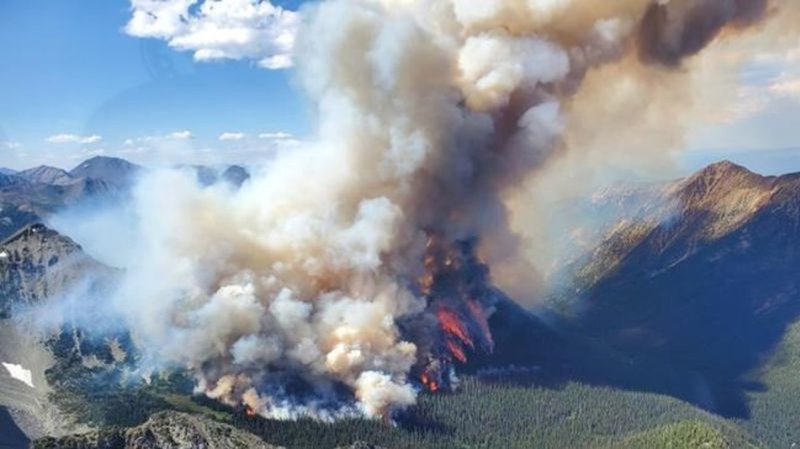A working group with members of Public Safety Canada, the military as well as BC emergency management and wildfire officials are set to meet today. A statement from BC’s Ministry of Emergency Management says they’ll discuss plans for deploying federal resources to help in the fight against hundreds of fires. It says two Canadian Armed Forces reconnaissance teams were deployed yesterday — a “land force team” in Prince George and an air force team in Kamloops. The ministry says the the teams are conducting assessments that will inform deployment plans for additional federal resources.
With around 380 wildfires burning in BC, the Canadian Interagency Forest Fire Centre says the province has the greatest number of blazes across the country. The number of highly visible, threatening or potentially damaging blazes surpassed 20 over the weekend and there are more than 70 wildfire-related evacuation alerts. Many of the “wildfires of note” and evacuation areas are clustered in the Cariboo and Bulkley-Nechako regions of of BC’s central Interior. Environment Canada continues to warn of smoky skies and reduced visibility throughout central and eastern BC.
The BC Wildfire Service has posted a tribute to Devyn Gale, the firefighter who died on the job last week, saying hearts are broken in the tight-knit community. The 19-year-old member of an initial attack crew based in Revelstoke died after being struck by a falling tree last week. The service says Gale personified the attributes of wildland firefighters — namely bravery, grit, hard work, determination, leadership and selflessness. It also shared a statement from Gale’s family, who described her as a loving daughter and sister who was training to become a nurse.
The opposition BC United is calling on the NDP government to declare the current drought a provincial State of Emergency. Agriculture critic Ian Paton says that would give ranchers and farmers access to both provincial and federal disaster assistance as they grapple with the conditions. Paton says he’s heard from some farmers who are moving their cattle to auction due to a lack of feed amid the persistent drought. The province has been urging the public to conserve water, with four of the 34 water basins it monitors now classified at the most severe level of drought.
A New Zealand man who was stabbed in Vancouver last week is healing with family in Yukon and plans to continue his three-month tour of Canada. Twenty-eight-year-old Jamie Hallowes says he was on his way to withdraw cash downtown when someone approached him from behind and stabbed him twice. One wound required stitches, but Hallowes says the experience hasn’t tainted his impression of Canada, and he plans to continue on to Alberta in the coming weeks. Vancouver police have confirmed that a visitor from New Zealand had been the victim of a random, unprovoked attack, with a suspect described as a man standing about five-foot-five, wearing a white T-shirt, dark jeans and a baseball cap.
BC’s Transportation Ministry has warned drivers not to pull over and stop to take pictures of wildfires, saying it’s “very unsafe” to do so. A statement posted to Facebook says staff have heard reports of people stopping along highways — especially Highway 16 between Prince Rupert and Prince George. A subsequent tweet from Drive BC says it’s not safe or prudent for drivers to stop and view wildfires and points to BC’s fire danger map, which shows much of the province is ranked at high to extreme risk.


